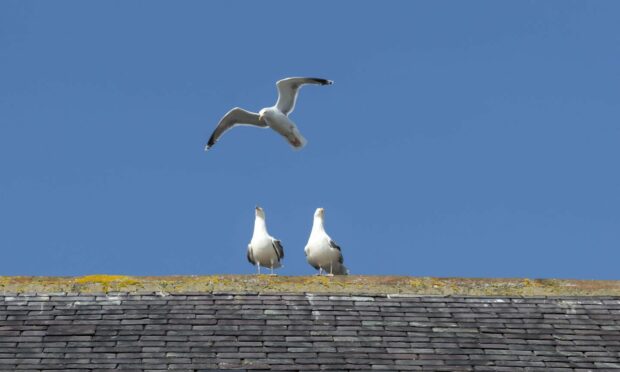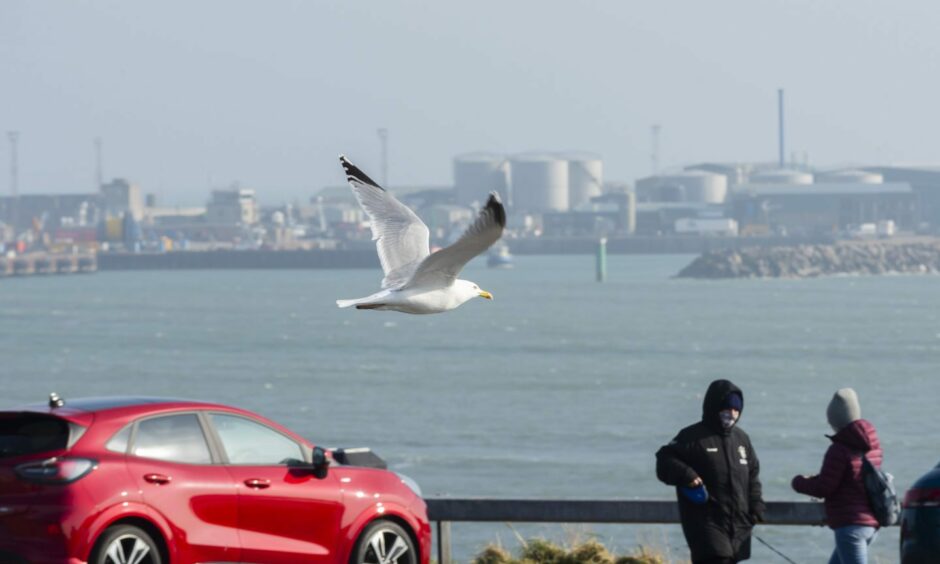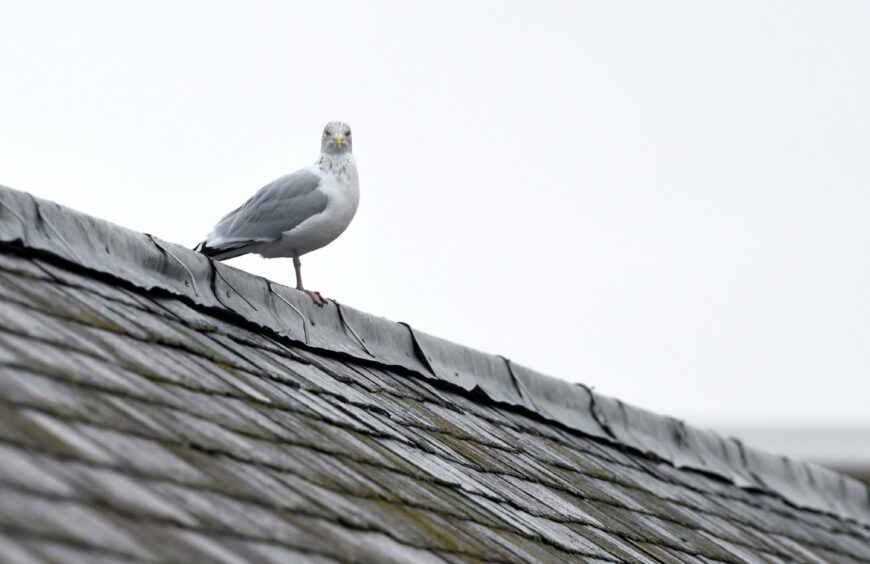Aberdeenshire residents are being encouraged to not feed gulls as nesting season begins.
The council is working to tackle issues with urban gulls across the region which includes discouraging the birds from nesting in towns and villages.
More gulls are staying in urban areas due to food being supplied for them which they are relying on over appropriate natural food sources.
Last year, 600 complaints were made about people feeding gulls with warning letters issued to those responsible.
North-east communities have also complained about noise, aggressive behaviour and fouling of gulls.
Gull advice for residents
Nesting season starts in March and continues until September.
Property owners are solely responsible for protecting their buildings against nesting gulls and any required work must be carried out by a pest controller or other professional.
As a protected species, it is illegal to capture, injure or destroy any wild bird or interfere with its nest or eggs without a licence for each individual case.
How can you stop gulls from nesting?
- Fit long spikes to nesting locations, such as chimney stacks
- Fit short spikes to nesting locations, such as dormer roof
- Fit wires to prevent gulls landing
How can you stop gulls form scavenging?
- Do not feed gulls
- Keep food out of sight
- Store your waste securely to prevent gulls getting into bags
- Dispose of your waste properly
‘Gulls not the issue’
John Crawley, chairman of the council’s infrastructure services committee, said there is “no doubt” many communities have issues with aggressive gulls, but the problem lies with the easy access to food.
He said: “We have very limited powers as a local authority to take action against the gulls, and as we have said for many years now, the key to reducing attacks and the mess caused by gulls lies in reducing their ability to breed and limiting the supply of food.
“I would encourage residents and visitors to Aberdeenshire to follow our simple advice – don’t feed them and dispose of all food waste and litter correctly.”



Conversation